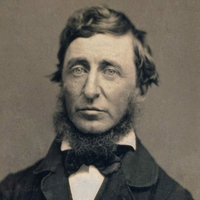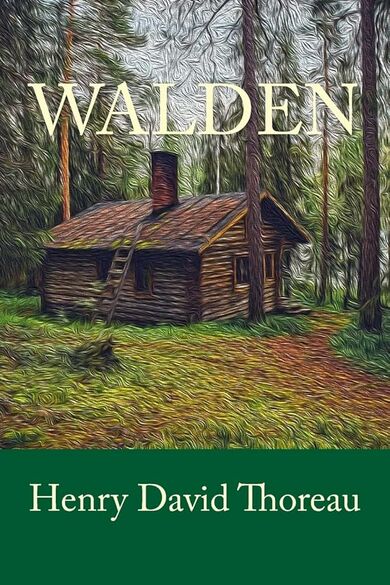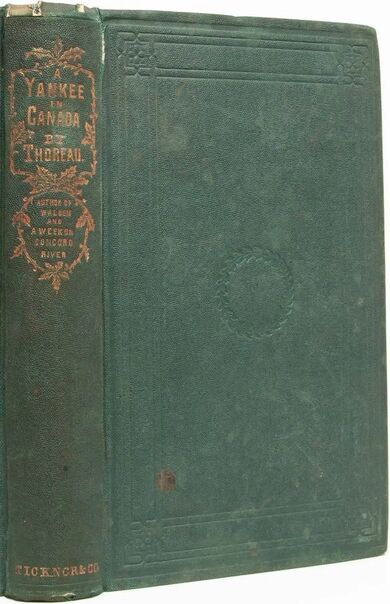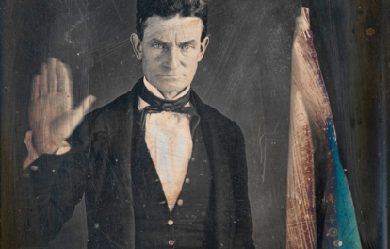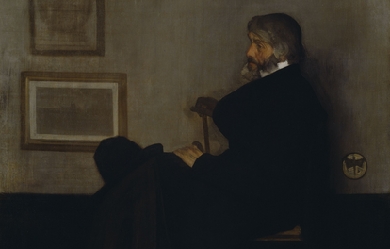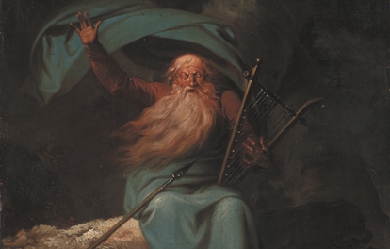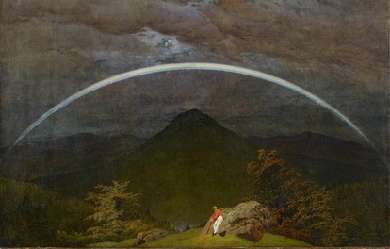The Service
Qualities of the Recruit
Each one his own hope.
—Virgil
The brave man is the elder son of creation, who has stepped buoyantly into his inheritance, while the coward, who is the younger, waiteth patiently till he decease. He rides as wide of this earth’s gravity as a star, and by yielding incessantly to all the impulses of the soul, is constantly drawn upward and becomes a fixed star. His bravery deals not so much in resolute action, as healthy and assured rest; its palmy state is a staying at home and compelling alliance in all directions. So stands his life to heaven, as some fair sunlit tree against the western horizon, and by sunrise is planted on some eastern hill, to glisten in the first rays of the dawn. The brave man braves nothing, nor knows he of his bravery. He is that sixth champion against Thebes, whom, when the proud devices of the rest have been recorded, the poet describes as “bearing a full-orbed shield of solid brass,”
For not to seem just but to be is his wish.”
He does not present a gleaming edge to ward off harm, for that will oftenest attract the lightning, but rather is the all-pervading ether, which the lightning does not strike but purify. So is the profanity of his companion as a flash across the face of his sky, which lights up and reveals its serene depths. Earth cannot shock the heavens, but its dull vapor and foul smoke make a bright cloud spot in the ether, and anon the sun, like a cunning artificer, will cut and paint it, and set it for a jewel in the breast of the sky.
His greatness is not measurable; not such a greatness as when we would erect a stupendous piece of art, and send far and near for materials, intending to lay the foundations deeper, and rear the structure higher than ever; for hence results only a remarkable bulkiness without grandeur, lacking those true and simple proportions which are independent of size. He was not builded by that unwise generation that would fain have reached the heavens by piling one brick upon another; but by a far wiser, that builded inward and not outward, having found out a shorter way, through the observance of a higher art. The Pyramids some artisan may measure with his line; but if he gives you the dimensions of the Parthenon in feet and inches, the figures will not embrace it like a cord, but dangle from its entablature like an elastic drapery.
His eye is the focus in which all the rays, from whatever side, are collected; for, itself being within and central, the entire circumference is revealed to it. Just as we scan the whole concave of the heavens at a glance, but can compass only one side of the pebble at our feet. So does his discretion give prevalence to his valor. “Discretion is the wise man’s soul” says the poet. His prudence may safely go many strides beyond the utmost rashness of the coward; for, while he observes strictly the golden mean, he seems to run through all extremes with impunity. Like the sun, which, to the poor worldling, now appears in the zenith, now in the horizon, and again is faintly reflected from the moon’s disk, and has the credit of describing an entire great circle, crossing the equinoctial and solstitial colures—without detriment to his steadfastness or mediocrity. The golden mean, in ethics, as in physics, is the centre of the system, and that about which all revolve; and, though to a distant and plodding planet it be the uttermost extreme, yet one day, when that planet’s year is complete, it will be found to be central. They who are alarmed lest Virtue should so far demean herself as to be extremely good, have not yet wholly embraced her, but described only a slight arc of a few seconds about her; and from so small and ill-defined a curvature, you can calculate no centre whatever; but their mean is no better than meanness, nor their medium than mediocrity.
The coward wants resolution, which the brave man can do without. He recognizes no faith but a creed, thinking this straw, by which he is moored, does him good service, because his sheet-anchor does not drag. “The house-roof fights with the rain; he who is under shelter does not know it.” In his religion the ligature, which should be muscle and sinew, is rather like that thread which the accomplices of Cylon held in their hands, when they went abroad from the temple of Minerva—the other end being attached to the statue of the goddess. But frequently, as in their case, the thread breaks, being stretched; and he is left without an asylum.
The divinity in man is the true vestal fire of the temple, which is never permitted to go out, but burns as steadily, and with as pure a flame, on the obscure provincial altars as in Numa’s temple at Rome. In the meanest are all the materials of manhood, only they are not rightly disposed. We say, justly, that the weak person is “flat”—for, like all flat substances, he does not stand in the direction of his strength, that is, on his edge, but affords a convenient surface to put upon. He slides all the way through life. Most things are strong in one direction; a straw longitudinally; a board in the direction of its edge; a knee transversely to its grain; but the brave man is a perfect sphere, which cannot fall on its flat side, and is equally strong every way. The coward is wretchedly spheroidal at best, too much educated or drawn out on one side, and depressed on the other; or may be likened to a hollow sphere, whose disposition of matter is best when the greatest bulk is intended.
We shall not attain to be spherical by lying on one or the other side for an eternity, but only by resigning ourselves implicitly to the law of gravity in us, shall we find our axis coincident with the celestial axis, and by revolving incessantly through all circles, acquire a perfect sphericity. Mankind, like the earth, revolve mainly from west to east, and so are flattened at the pole. But does not philosophy give hint of a movement commencing to be rotary at the poles too, which in a millennium will have acquired increased rapidity, and help restore an equilibrium? And when at length every star in the nebulae and Milky Way has looked down with mild radiance for a season, exerting its whole influence as the polar star, the demands of science will in some degree be satisfied.
The grand and majestic have always somewhat of the undulatoriness of the sphere. It is the secret of majesty in the rolling gait of the elephant, and of all grace in action and in art. Always the line of beauty is a curve. When with pomp a huge sphere is drawn along the streets, by the efforts of a hundred men, I seem to discover each striving to imitate its gait, and keep step with it—if possible to swell to its own diameter. But onward it moves, and conquers the multitude with its majesty. What shame, then, that our lives, which might so well be the source of planetary motion, and sanction the order of the spheres, should be full of abruptness and angularity, so as not to roll nor move majestically!
The Romans “made Fortune surname to Fortitude,” for fortitude is that alchemy that turns all things to good fortune. The man of fortitude, whom the Latins called fortis is no other than that lucky person whom fors favors, or vir summae fortis. If we will, every bark may “carry Caesar and Caesar’s fortune.” For an impenetrable shield, stand inside yourself; he was no artist, but an artisan, who first made shields of brass. For armor of proof, mea virtute me involvo—I wrap myself in my virtue;
Upon my ruins, smiling yet.”
If you let a single ray of light through the shutter, it will go on diffusing itself without limit till it enlighten the world; but the shadow that was never so wide at first, as rapidly contracts till it comes to naught. The shadow of the moon, when it passes nearest the sun, is lost in space ere it can reach our earth to eclipse it. Always the system shines with uninterrupted light; for as the sun is so much larger than any planet, no shadow can travel far into space. We may bask always in the light of the system, always may step back out of the shade. No man’s shadow is as large as his body, if the rays make a right angle with the reflecting surface. Let our lives be passed under the equator, with the sun in the meridian.
There is no ill which may not be dissipated like the dark, if you let in a stronger light upon it. Overcome evil with good. Practice no such narrow economy as they, whose bravery amounts to no more light than a farthing candle, before which most objects cast a shadow wider than themselves.
Nature refuses to sympathize with our sorrow; she has not provided for, but by a thousand contrivances against it: she has bevelled the margin of the eyelids, that the tears may not overflow on the cheeks. It was a conceit of Plutarch, accounting for the preference given to signs observed on the left hand, that men may have thought “things terrestrial and mortal directly over against heavenly and divine things, and do conjecture that the things which to us are on the left hand, the gods send down from their right hand.” If we are not blind, we shall see how a right hand is stretched over all—as well the unlucky as the lucky—and that the ordering Soul is only right-handed, distributing with one palm all our fates.
What first suggested that necessity was grim, and made fate to be so fatal? The strongest is always the least violent. Necessity is my eastern cushion on which I recline. My eye revels in its prospect as in the summer haze. I ask no more but to be left alone with it. It is the bosom of time and the lap of eternity. To be necessary is to be needful, and necessity is only another name for inflexibility of good. How I welcome my grim fellow, and walk arm in arm with him! Let me too be such a Necessity as he! I love him, he is so flexile, and yields to me as the air to my body. I leap and dance in his midst, and play with his beard till he smiles. I greet thee, my elder brother! who with thy touch ennoblest all things. Then is holiday when naught intervenes betwixt me and thee. Must it be so—then is it good. The stars are thy interpreters to me.
Over Greece hangs the divine necessity, ever a mellower heaven of itself; whose light gilds the Acropolis and a thousand fanes and groves.
What Music Shall We Have?
Brings this reproach to me,
That I alone afford the ear,
Who would the music be.
The brave man is the sole patron of music; he recognizes it for his mother tongue; a more mellifluous and articulate language than words, in comparison with which, speech is recent and temporary. It is his voice. His language must have the same majestic movement and cadence that philosophy assigns to the heavenly bodies. The steady flux of his thought constitutes time in music. The universe falls in and keeps pace with it, which before proceeded singly and discordant. Hence are poetry and song. When Bravery first grew afraid and went to war, it took Music along with it. The soul is delighted still to hear the echo of her own voice. Especially the soldier insists on agreement and harmony always. To secure these he falls out. Indeed, it is that friendship there is in war that makes it chivalrous and heroic. It was the dim sentiment of a noble friendship for the purest soul the world has seen, that gave to Europe a crusading era. War is but the compelling of peace. If the soldier marches to the sack of a town, he must be preceded by drum and trumpet, which shall identify his cause with the accordant universe. All things thus echo back his own spirit, and thus the hostile territory is preoccupied for him. He is no longer insulated, but infinitely related and familiar. The roll-call musters for him all the forces of Nature.
There is as much music in the world as virtue. In a world of peace and love music would be the universal language, and men greet each other in the fields in such accents as a Beethoven now utters at rare intervals from a distance. All things obey music as they obey virtue. It is the herald of virtue. It is God’s voice. In it are the centripetal and centrifugal forces. The universe needed only to hear a divine melody, that every star might fall into its proper place, and assume its true sphericity. It entails a surpassing affluence on the meanest thing; riding over the heads of sages, and soothing the din of philosophy. When we listen to it we are so wise that we need not to know. All sounds, and more than all, silence, do fife and drum for us. The least creaking doth whet all our senses, and emit a tremulous light, like the aurora borealis, over things. As polishing expresses the vein in marble, and the grain in wood, so music brings out what of heroic lurks anywhere. It is either a sedative or a tonic to the soul.
I read that “Plato thinks the gods never gave men music, the science of melody and harmony, for mere delectation or to tickle the ear; but that the discordant parts of the circulations and beauteous fabric of the soul, and that of it that roves about the body, and many times for want of tune and air, breaks forth into many extravagances and excesses, might be sweetly recalled and artfully wound up to their former consent and agreement.”
A sudden burst from a horn startles us, as if one had rashly provoked a wild beast. We admire his boldness; he dares wake the echoes which he cannot put to rest. The sound of a bugle in the stillness of the night sends forth its voice to the farthest stars, and marshals them in new order and harmony. Instantly it finds a fit sounding-board in the heavens. The notes flash out on the horizon like heat lightning, quickening the pulse of creation. The heavens say, Now is this my own earth.
To the sensitive soul the Universe has her own fixed measure, which is its measure also, and as this, expressed in the regularity of its pulse, is inseparable from a healthy body, so is its healthiness dependent on the regularity of its rhythm. In all sounds the soul recognizes its own rhythm, and seeks to express its sympathy by a correspondent movement of the limbs. When the body marches to the measure of the soul, then is true courage and invincible strength. The coward would reduce this thrilling sphere-music to a universal wail—this melodious chant to a nasal cant. He thinks to conciliate all hostile influences by compelling his neighborhood into a partial concord with himself; but his music is no better than a jingle, which is akin to a jar—jars regularly recurring. He blows a feeble blast of slender melody, because Nature can have no more sympathy with such a soul than it has of cheerful melody in itself. Hence hears he no accordant note in the universe, and is a coward, or consciously outcast and deserted man. But the brave man, without drum or trumpet, compels concord everywhere, by the universality and tunefulness of his soul.
Let not the faithful sorrow that he has no ear for the more fickle and subtle harmonies of creation, if he be awake to the slower measure of virtue and truth. If his pulse does not beat in unison with the musician’s quips and turns, it accords with the pulse-beat of the ages.
A man’s life should be a stately march to an unheard music; and when to his fellows it may seem irregular and inharmonious, he will be stepping to a livelier measure, which only his nicer ear can detect. There will be no halt, ever, but at most a marching on his post, or such a pause as is richer than any sound, when the deeper melody is no longer heard, but implicitly consented to with the whole life and being. He will take a false step never, even in the most arduous circumstances; for then the music will not fail to swell into greater volume, and rule the movement it inspired.
Not How Many, but Where the Enemy Are
Let’s do it after the high Roman fashion.
—Shakespeare
When my eye falls on the stupendous masses of the clouds, tossed into such irregular greatness across the cope of my sky, I feel that their grandeur is thrown away on the meanness of my employments. In vain the sun, thro’ morning and noon rolls defiance to man, and, as he sinks behind his cloudy fortress in the west, challenges him to equal greatness in his career; but, from his humbleness he looks up to the domes and minarets and gilded battlements of the Eternal City, and is content to be a suburban dweller outside the walls. We look in vain over earth for a Roman greatness, to take up the gantlet which the heavens throw down. Idomeneus would not have demurred at the freshness of the last morning that rose to us, as unfit occasion to display his valor in; and of some such evening as this, methinks, that Grecian fleet came to anchor in the bay of Aulis. Would that it were to us the eve of a more than ten years’ war—a tithe of whose exploits, and Achillean withdrawals, and godly interferences, would stock a library of Iliads.
Better that we have some of that testy spirit of knight errantry, and if we are so blind as to think the world is not rich enough nowadays to afford a real foe to combat, with our trusty swords and double-handed maces, hew and mangle some unreal phantom of the brain. In the pale and shivering fogs of the morning, gathering them up betimes, and withdrawing sluggishly to their daylight haunts, I see Falsehood sneaking from the full blaze of truth, and with good relish could do execution on their rearward ranks, with the first brand that came to hand. We too are such puny creatures as to be put to flight by the sun, and suffer our ardor to grow cool in proportion as his increases; our own short-lived chivalry sounds a retreat with the fumes and vapors of the night; and we turn to meet mankind, with its meek face preaching peace, and such nonresistance as the chaff that rides before the whirlwind.
Let not our Peace be proclaimed by the rust on our swords, or our inability to draw them from their scabbards; but let her at least have so much work on her hands as to keep those swords bright and sharp. The very dogs that bay the moon from farmyards o’ these nights, do evince more heroism than is tamely barked forth in all the civil exhortations and war sermons of the age. And that day and night, which should be set down indelibly in men’s hearts, must be learned from the pages of our almanac. One cannot wonder at the owlish habits of the race, which does not distinguish when its day ends and night begins; for, as night is the season of rest, it would be hard to say when its toil ended and its rest began. Not to it
Day, or the sweet approach of even or morn,
Or sight of vernal bloom, or summer’s rose,
Or flocks or herds, or human face divine;
But cloud instead, and ever-during dark
Surrounds.
And so the time lapses without epoch or era, and we know some half-score of mornings and evenings by tradition only. Almost the night is grieved and leaves her tears on the forelock of day, that men will not rush to her embrace, and fulfill at length the pledge so forwardly given in the youth of time. Men are a circumstance to themselves, instead of causing the universe to stand around, the mute witness of their manhood, and the stars to forget their sphere music and chant an elegiac strain, that heroism should have departed out of their ranks and gone over to humanity.
It is not enough that our life is an easy one; we must live on the stretch, retiring to our rest like soldiers on the eve of a battle, looking forward with ardor to the strenuous sortie of the morrow. “Sit not down in the popular seats and common level of virtues, but endeavor to make them heroical. Offer not only peace-offerings but holocausts unto God.” To the brave soldier the rust and leisure of peace are harder than the fatigues of war. As our bodies court physical encounters, and languish in the mild and even climate of the tropics, so our souls thrive best on unrest and discontent. The soul is a sterner master than any King Frederick; for a true bravery would subject our bodies to rougher usage than even a grenadier could withstand. We too are dwellers within the purlieus of the camp. When the sun breaks through the morning mist, I seem to hear the din of war louder than when his chariot thundered on the plains of Troy. The thin fields of vapor, spread like gauze over the woods, form extended lawns whereon high tournament is held;
Prick forth the aery knights, and couch their spears,
Till thickest legions close.
It behoves us to make life a steady progression, and not be defeated by its opportunities. The stream which first fell a drop from heaven, should be filtered by events till it burst out into springs of greater purity, and extract a diviner flavor from the accidents through which it passes. Shall man wear out sooner than the sun? and not rather dawn as freshly, and with such native dignity stalk down the hills of the East into the bustling vale of life, with as lofty and serene a countenance to roll onward through midday, to a yet fairer and more promising setting? In the crimson colors of the west I discover the budding hues of dawn. To my western brother it is rising pure and bright as it did to me; but only the evening exhibits in the still rear of day, the beauty which through morning and noon escaped me. Is not that which we call the gross atmosphere of evening the accumulated deed of the day, which absorbs the rays of beauty, and shows more richly than the naked promise of the dawn? Let us look to it that by earnest toil in the heat of the noon, we get ready a rich western blaze against the evening.
Nor need we fear that the time will hang heavy when our toil is done; for our task is not such a piece of day-labor, that a man must be thinking what he shall do next for a livelihood—but such, that as it began in endeavor, so will it end only when no more in heaven or on earth remains to be endeavored. Effort is the prerogative of virtue. Let not death be the sole task of life—the moment when we are rescued from death to life, and set to work—if indeed that can be called a task which all things do but alleviate. Nor will we suffer our hands to lose one jot of their handiness by looking behind to a mean recompense; knowing that our endeavor cannot be thwarted, nor we be cheated of our earnings unless by not earning them. It concerns us, rather, to be somewhat here present, than to leave something behind us; for, if that were to be considered, it is never the deed men praise, but some marble or canvas, which are only a staging to the real work. The hugest and most effective deed may have no sensible result at all on earth, but may paint itself in the heavens with new stars and constellations. When in rare moments our whole being strives with one consent, which we name a yearning, we may not hope that our work will stand in any artist’s gallery on earth. The bravest deed, which for the most part is left quite out of history—which alone wants the staleness of a deed done, and the uncertainty of a deed doing—is the life of a great man. To perform exploits is to be temporarily bold, as becomes a courage that ebbs and flows—the soul, quite vanquished by its own deed, subsiding into indifference and cowardice; but the exploit of a brave life consists in its momentary completeness.
Every stroke of the chisel must enter our own flesh and bone; he is a mere idolater and apprentice to art who suffers it to grate dully on marble. For the true art is not merely a sublime consolation and holiday labor, which the gods have given to sickly mortals; but such a masterpiece as you may imagine a dweller on the tablelands of central Asia might produce, with threescore and ten years for canvas, and the faculties of a man for tools—a human life; wherein you might hope to discover more than the freshness of Guido’s Aurora, or the mild light of Titian’s landscapes—no bald imitation nor even rival of Nature, but rather the restored original of which she is the reflection. For such a masterpiece as this, whole galleries of Greece and Italy are a mere mixing of colors and preparatory quarrying of marble.
Of such sort, then, be our crusade—which, while it inclines chiefly to the hearty good will and activity of war, rather than the insincerity and sloth of peace, will set an example to both of calmness and energy;—as unconcerned for victory as careless of defeat—not seeking to lengthen our term of service, nor to cut it short by a reprieve—but earnestly applying ourselves to the campaign before us. Nor let our warfare be a boorish and uncourteous one, but a higher courtesy attend its higher chivalry—though not to the slackening of its tougher duties and severer discipline. That so our camp may be a palaestra, wherein the dormant energies and affections of men may tug and wrestle, not to their discomfiture, but to their mutual exercise and development.
What were Godfrey and Gonsalvo unless we breathed a life into them and enacted their exploits as a prelude to our own? The Past is the canvas on which our idea is painted—the dim prospectus of our future field. We are dreaming of what we are to do. Methinks I hear the clarion sound, and clang of corselet and buckler, from many a silent hamlet of the soul. The signal gun has long since sounded, and we are not yet on our posts. Let us make such haste as the morning, and such delay as the evening.

